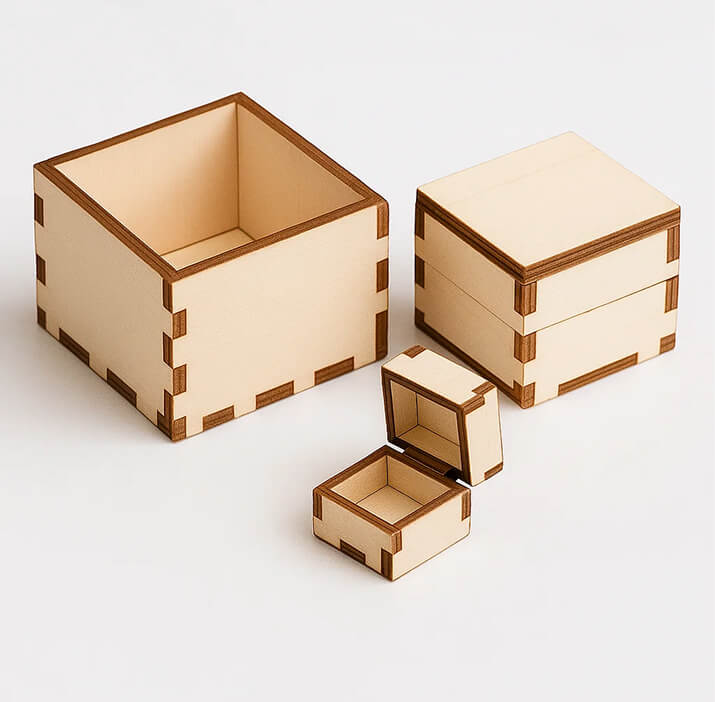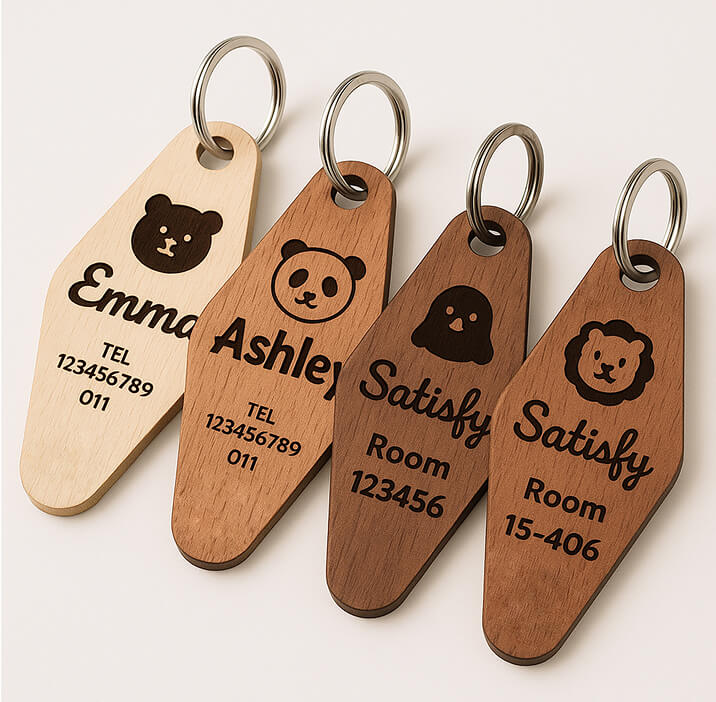Report
![[Laser cut and engrave] Laser Cut Spider-Man and Venom Happy Birthday Cake Topper](https://storage-us.atomm.com/resource/xtool/community/attachment/xtool-community/74bd8802-84b2-4cee-9a09-505aa217bffb.png?x-oss-process=image/resize,w_1200,h_900,limit_0/interlace,1/format,webp/auto-orient,1)
Laser Cut Spider-Man and Venom Happy Birthday Cake Topper
SpidermanVenom
.xcs
Application scenario
Laser processing
Machine & module
xTool P2S
55WCompatibles · 11
Material used

1/8"(3mm) Black Acrylic

3mm Black Opaque Glossy Acrylic(3pcs)
2
10
Information
Make the Spiderman and Venom fan in your life happy for their birthday!
Instruction
1
Step1
Preview
Preview
Required Supplies and Machinery:
- Acrylic Sheet: A 3mm cast acrylic sheet is advisable for the ideal thickness and a refined, polished edge when sliced. Cast acrylic is favored over extruded acrylic because it yields a more flawless finish.
- Laser Cutter: For acrylic projects, a CO2 laser cutter is the most suitable tool.
- Masking Material: You can use green painter's tape or a paper-based laser masking tape.
- Design File: Your vector design for the "Spiderman" cake topper.
- Spacers: Small, flat items of a consistent height (such as acrylic remnants or wood blocks) to lift the acrylic sheet.
- Cleaning Items: A microfiber towel and a gentle dish soap.
Phase 1: Preparing Your Material
Properly getting your acrylic sheet ready before you start is vital for a perfect result.
- Peel Off the Protective Film: Most acrylic sheets are sold with a thin plastic film on both surfaces to guard against scratches. Delicately remove this film. Some recommend leaving the bottom film on to avoid scratches from the laser bed; however, for the most immaculate cut, it's preferable to take both off and use your own masking.
- Clean the Acrylic: After the film is gone, softly wipe both sides of the acrylic sheet with a microfiber cloth to get rid of any dust or particles.
- Apply Masking Tape: To safeguard the acrylic surface from smoke discoloration and scorch marks during the cutting process, put a layer of green painter's tape or specialized laser masking tape on both the front and back of the sheet. Be sure the tape is applied evenly, with no air pockets or overlaps, as these could compromise the quality of the cut. Alternatively, some individuals have had success with a thin application of dish soap as a masking agent.
Phase 2: Configuring Your Laser Cutter
The correct setup of your laser cutter is fundamental to getting a sharp and accurate cut.
- Elevate the Acrylic: To avert "flashback"—small imperfections on the underside of your design from the laser reflecting off the honeycomb platform—raise the acrylic sheet by approximately 3mm. This can be accomplished by positioning small, uniform spacers, like leftover 3mm acrylic pieces, beneath each corner of the sheet.
- Focus the Laser: Confirm that your laser is accurately focused on the acrylic's surface. A proper focus is crucial for a consistent and sharp cut.
- Optimize Air Assist: If your laser cutter is equipped with an air assist feature, check that it is operating correctly. Air assist functions to clear away debris and smoke, which helps to prevent flare-ups and leads to a cleaner cut edge.
Phase 3: Cutting Your Cake Topper
You are now prepared to cut your "Spiderman" design.
- Cut from the Reverse: For the finest outcome, particularly with mirrored acrylic, it is suggested to mirror your design within the software and cut from the back surface of the acrylic. This approach aids in creating the cleanest possible front-facing side.
- Laser Settings: The perfect power and speed settings will differ based on your specific laser cutter and its laser wattage. As a general rule, a lower power setting and a slower speed will usually produce a smoother, flame-polished edge. It is strongly advised to conduct a small test cut on a scrap piece of the identical acrylic to determine the optimal settings prior to cutting your final piece.
Phase 4: Finishing Touches
After the cutting is finished, a few final actions will guarantee your cake topper is ready for its moment.
- Take Off the Masking: Cautiously peel the painter's tape or masking from both sides of your cake topper. A tool such as a plastic razor blade can be handy for lifting the edge of the tape without marring the acrylic.
- Clean the Topper: Upon removing the masking, some residue or fingerprints might be present. Clean the acrylic with a soft microfiber cloth and a tiny bit of mild dish soap. Important: Steer clear of alcohol-based cleaners, as they can lead to cracking in the acrylic.
- Final Review: Give your cake topper one last inspection to certify there are no blemishes.
Comments
Remixes
xTool Supplies Used in This Template
License
This work contains AI-generated content.










